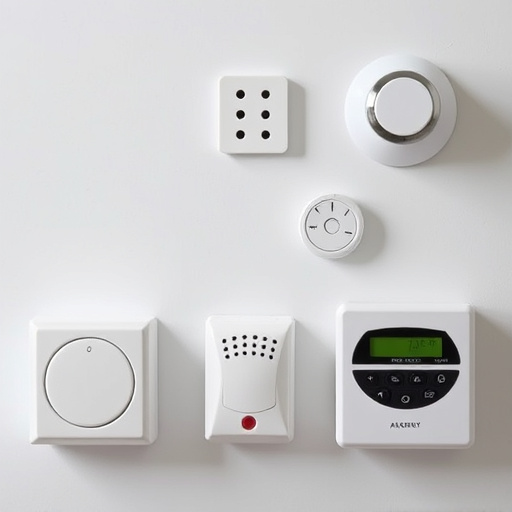Personal alarms with backup batteries are revolutionary tools for senior safety, offering discreet yet powerful protection for those living alone or facing mobility challenges. These advanced wearable devices feature microphones, speakers, and sensors for two-way communication, fall detection, and activity monitoring, respectively. They enable seniors to instantly call for help during emergencies, enhancing independence while providing crucial peace of mind. With GPS tracking, automatic fall detection, and easy-to-use panic buttons, these alarms ensure round-the-clock protection—even during power outages—making them a lifeline for independent living. Proper selection, placement, testing, maintenance, and clear communication are key to maximizing their effectiveness as wearable security solutions.
As our population ages, ensuring the safety and well-being of seniors becomes increasingly vital. Wearable security alarms designed specifically for seniors offer a peace of mind like never before. This article delves into the world of personal alarms tailored to meet the unique needs of older adults, highlighting their features and benefits, especially those with backup battery functionality. We’ll explore implementation strategies and considerations for optimal use, empowering caregivers and loved ones to maintain independence while enhancing safety.
- Understanding Wearable Security Alarms for Seniors
- Features and Benefits of Personal Alarms With Backup Battery
- Implementation and Considerations for Effective Use
Understanding Wearable Security Alarms for Seniors
Wearable security alarms for seniors are innovative personal safety devices designed to provide peace of mind and assistance in emergencies. These compact, often wrist-worn devices offer a discrete yet powerful solution for elderly individuals who may live alone or have mobility issues. Key features include a built-in microphone and speaker for two-way communication, sensors that detect falls or unusual activity, and a backup battery ensuring continuous operation even during power outages.
Personal alarms with backup battery are particularly valuable in scenarios where traditional home security systems might not be as effective. They offer seniors the ability to call for help instantly, connect with care providers, or alert emergency services without the need for complex activation processes. This technology empowers individuals to maintain their independence while enjoying enhanced safety and support.
Features and Benefits of Personal Alarms With Backup Battery
Personal Alarms With Backup Battery offer a range of advanced features designed to enhance safety and peace of mind for seniors. One key advantage is their autonomy; equipped with a backup battery, these alarms can continue functioning even during power outages, ensuring round-the-clock protection. This redundancy is particularly valuable in emergency situations where reliable power supply might be uncertain.
Additionally, these personal alarms often incorporate discrete yet powerful components. They may include GPS tracking for precise location identification, automatic fall detection sensors to alert responders promptly in case of an accident, and easy-to-use panic buttons that allow seniors to quickly summon help. Such features make Personal Alarms With Backup Battery not just a safety measure but a lifeline for independent living.
Implementation and Considerations for Effective Use
Implementing a wearable security alarm for seniors involves careful consideration to ensure its effective and reliable use. The first step is choosing a device that suits their needs, like personal alarms with backup batteries, which offer continuous protection even during power outages or when out of range. These alarms are typically small, lightweight, and easy to activate, making them convenient for daily wear.
Placement and comfort are key; the alarm should be securely fastened but not too tight or restrictive. It’s also important to ensure clear communication between the senior and emergency contacts. Regular testing and maintenance are crucial; checking the device’s functionality and battery life ensures it’s always ready when needed. Additionally, providing training or simple instructions on how and when to activate the alarm can significantly enhance its effectiveness.
Wearable security alarms, particularly those with backup battery features, offer seniors enhanced safety and peace of mind. By integrating these personal alarms into their daily routines, individuals can confidently navigate their lives, knowing help is readily available. When choosing a wearable alarm, consider devices with long-lasting batteries, automatic fall detection, and discrete designs to ensure comfort and reliability. Effective use involves regularly testing the device and staying connected with monitoring services for prompt response during emergencies.
